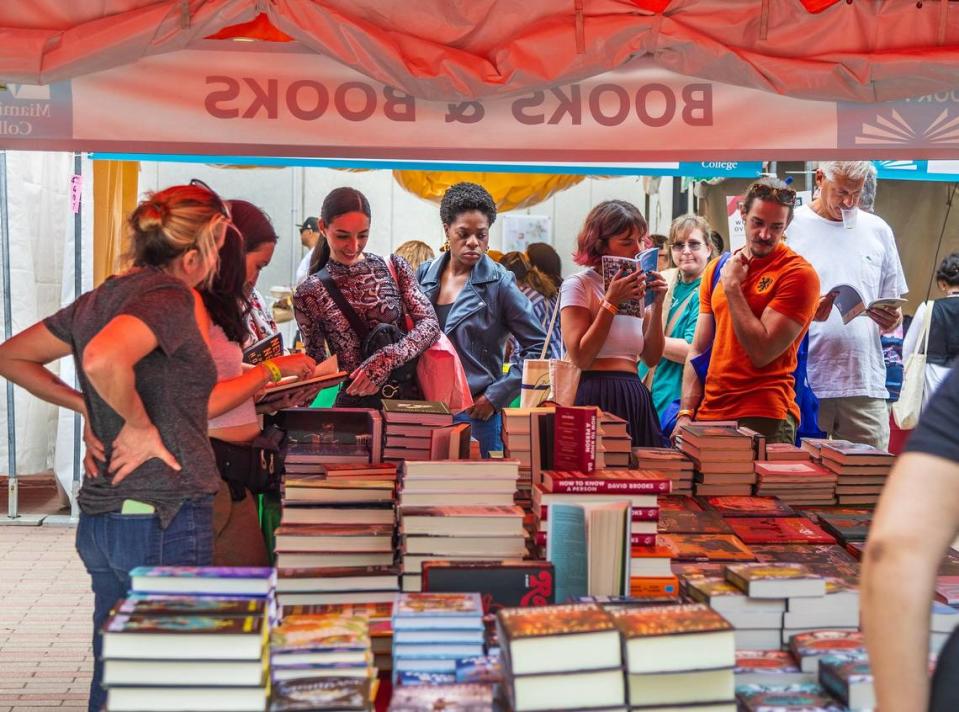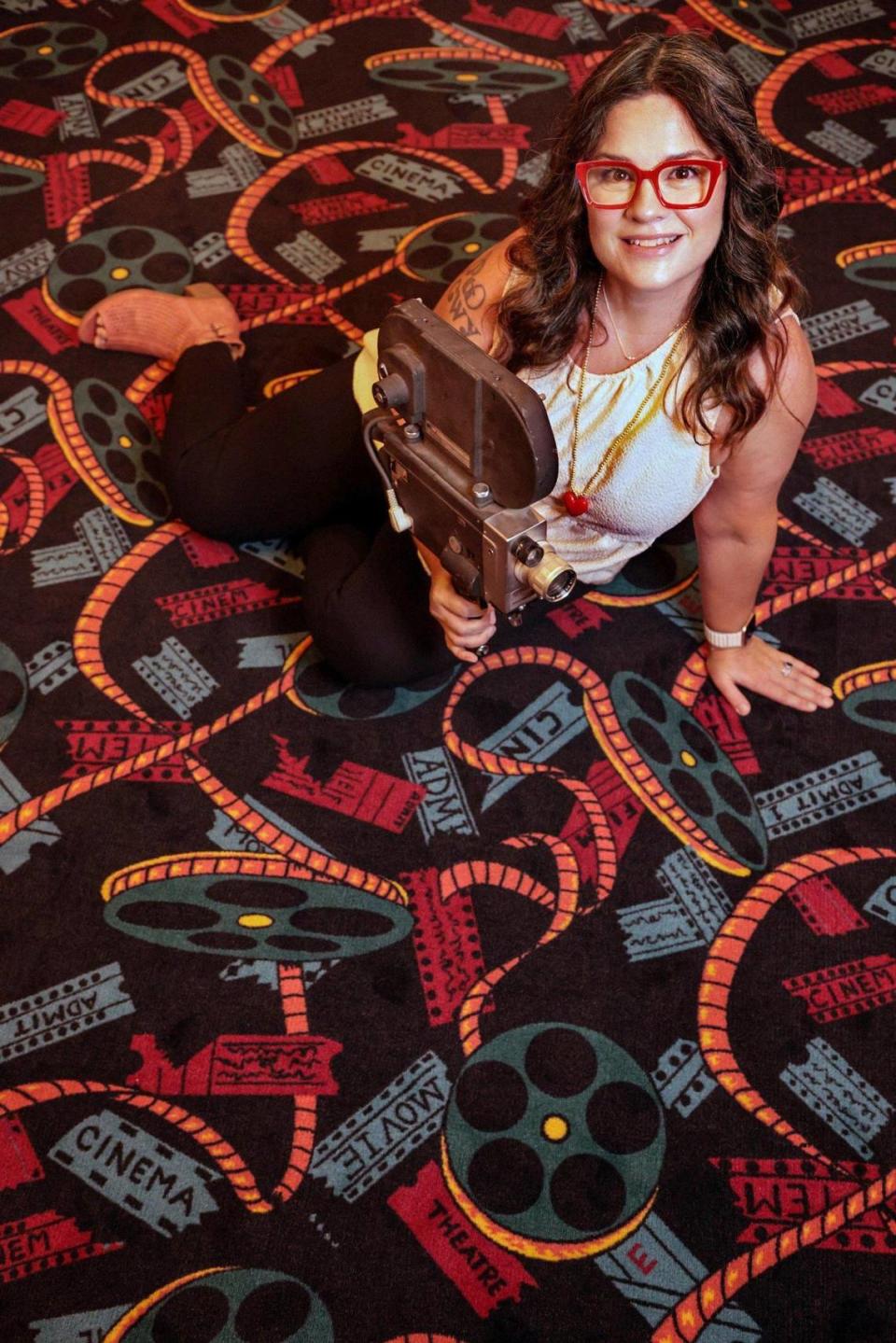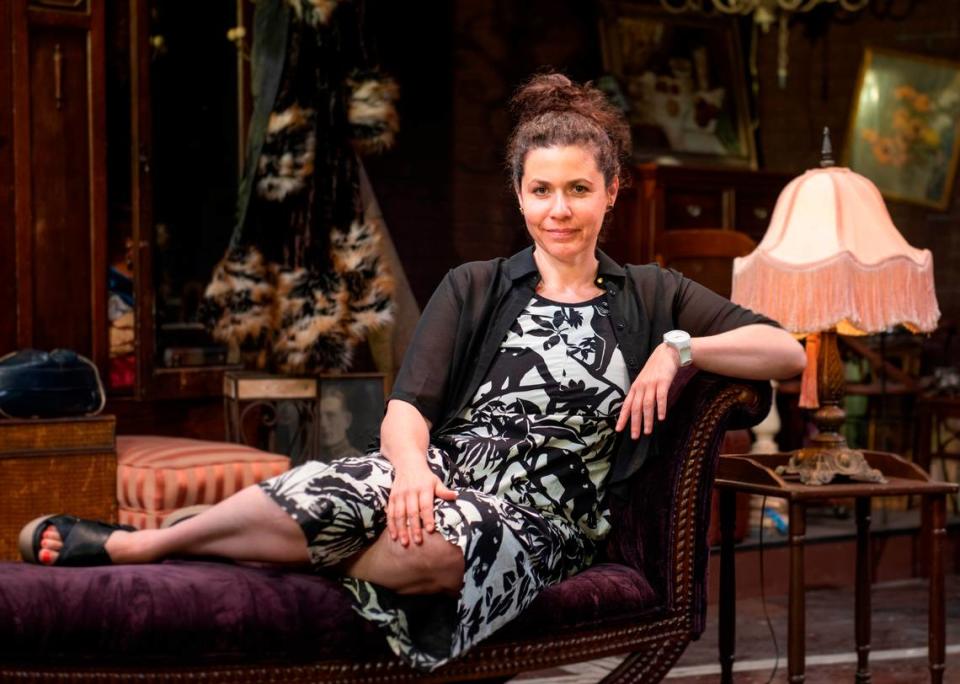Miami cultural institutions scramble after DeSantis cut $32 million in arts grants
- Oops!Something went wrong.Please try again later.
Miami’s beloved book fair was supposed to get $55,000. And there was $70,415 for a local Jewish community center. An artist residency netted $46,530. And a youth dance group? $70,500.
Or at least that was the plan until earlier this month when Gov. Ron DeSantis vetoed $32 million in grant funding slated for over 600 arts and cultural organizations, including about 130 groups in Miami-Dade County, from the state budget. Now, they get nothing.
“This is unprecedented,” said Allyn Ginns Ayers, the associate director of Dance Now! Miami and the director of LegalARTLink, a program at Locust Projects that assists art groups and artists with legal issues. “I don’t think anyone was expecting this.”

The institutions impacted range in size, scale, scope and mission, including the Perez Art Museum Miami, the Adrienne Arsht Center for the Performing Arts, Zoo Miami, Vizcaya Museum and Gardens, the Holocaust Memorial Committee and Miami City Ballet. Smaller organizations are expected to struggle the most, and arts leaders across the state are warning that DeSantis’ veto will have drastic effects on local economies.
Arts organizations are no stranger to budget cuts, but the governor’s veto has some groups wondering how they’ll make it to next season. South Florida arts nonprofits who have relied on state grant funding for years are scrambling to figure out how to save their budgets, programming and staff salaries. And arts leaders are exasperated.
“It’s always something,” said Bari Newport, Gablestage artistic director. “Depending on the size of the organization, it’s either fatal or it’s beyond an inconvenience.”
Gablestage, a Miami nonprofit theater company that provides free and subsidized tickets for seniors and public school students, had its grant cut from $150,000 to $70,500 to zero this year.
‘We know that we’re important’
The arts funding veto was part of nearly $1 billion in line-item cuts DeSantis made before signing the state’s $116.5 billion 2024-25 budget. DeSantis has given no specific reason as to why the arts grants were cut. A governor spokesperson said DeSantis’ veto decisions “are in the best interest of the State of Florida.”
Brenda Moe, the Coral Gables Art Cinema executive director, said the veto has left a wave of confusion in its wake. Gables Cinema, which has been receiving state grants for over a decade, puts its usual grant funding toward general expenses, like salaries, rent, office supplies and licensing new films.
The state grant application process is arduous, Moe said. A year in advance, groups submit a comprehensive application, which is reviewed by a panel “with a fine-tooth comb.” That panel then gives the state recommendations for how much funding the groups should get, and the legislature determines the final amount in the budget, Moe said. This year, the budget approved by the state House and Senate gave grant recipients 47 percent of what the panel recommended.

This year, the panel recommended over $100,000 for the cinema and the legislature set aside $47,000. In the past, Moe said, Gables Cinema’s grants have ranged from $6,000 to $90,000. But never zero.
Dance Now! Miami, which was supposed to receive over $25,000, is in for a challenging year, Ayers said. The group will have to rework its budget to keep its dancers employed, but the ensemble may have to scale back on some of its programming.
Art organizations learned how much funding the legislature allocated for them months ago, which means groups went into summer thinking their budgets and programming were ready to go. But now, Moe said, groups like Gables Cinema have to get creative to make up for the lost funding and reach out to the community for help.
The best way for people to show support for their local arts groups is to come buy tickets, she said.
“Our work stands on its own. I can’t convince somebody who has zero interest in the arts that the arts have value,” Moe said. “What I can do is I can keep on providing those arts to the people that love it and they are the ones who advocate for us. We know that we’re important.”
Economics and politics
Miami-Dade has cemented itself as a global arts hub, especially with its annual Art Basel Miami Beach. State data shows the significant impact arts and culture nonprofits have on the economy.
In 2022, according to the Florida Division of Arts & Culture, nonprofit arts and culture organizations and their audiences generated over $151 billion in economic activity. Statewide the arts industry supports 2.6 million jobs and generates $29.1 billion in tax revenue, according to the state’s report.
Businesses that surround local arts organizations, performance centers and theaters will be impacted, arts leaders said. In Coral Gables, Moe and Newport said, audience members pay to park, go to nearby restaurants and hang around stores before and after shows.
“To say anything less than ‘devastating’ wouldn’t be an accurate description of what this cut is going to have,” Moe said. “It’s a ripple effect.”
Since DeSantis’ administration has funded the arts well in past years, Ayers said it is “unclear what priorities are being elevated over the arts.”
It may be too early to say if the cuts to arts funding are a sign of things to come, but Ayers said organizations should start diversifying their streams of funding, especially if volatile politics are in play. But that’s easier said than done. Hundreds of Florida organizations are now scrambling to get funds potentially from the same sources, and organizations have already submitted applications for the following fiscal year’s state grants.
Ayers said arts leaders and supporters should begin advocating for arts funding as soon as possible by reaching out to elected officials and lawmakers.
“Organizations are going into this cycle a little bit blind as to whether or not there will be any funds available,” Ayers said.
Besides the economics, Newport stressed the role arts play in society. The arts enrich peoples’ lives, and for Newport, its unconscionable for the state of Florida to cut funding for programs that benefit the average Floridian.
Newport’s response to the governor could be summed up in a word: “Really?!”

“You’ve never been transported by a piece of visual art?” she said. “Really? You haven’t read something that has moved you? Really? You haven’t leaned on art after you’ve lost someone that you love? Really? You believe that these vital organizations are extra?”
This story was produced with financial support from individuals and Berkowitz Contemporary Arts in partnership with Journalism Funding Partners, as part of an independent journalism fellowship program. The Miami Herald maintains full editorial control of this work.


